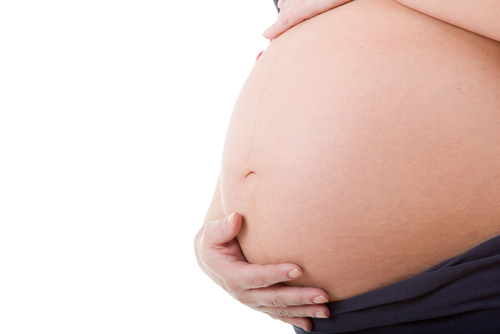Women with endometriosis have a higher risk of serious pregnancy complications that can affect the mother, the fetus, or the newborn, a review study and pooled analysis shows.
In particular, researchers called attention to the impact of endometriosis on stillbirth and neonatal deaths, an area of concern they say calls for additional study.
The study, “Endometriosis and adverse maternal, fetal and neonatal outcomes, a systematic review and meta-analysis,” was published in the journal Human Reproduction.
Endometriosis can be associated with alterations of the endometrium (the tissue that lines the inside of the uterus) and the normal functioning of the ovaries and egg cell (oocyte) production, all of which may endanger the implantation of the embryo and its development.
Many studies have suggested that endometriosis might raise the chances of adverse maternal and fetal outcomes. But the reported findings are contradictory and may be biased for women conceiving with the help of assisted reproduction, since many women with endometriosis have fertility problems.
There is a growing interest in understanding the impact of endometriosis on adverse pregnancy outcomes, particularly more recently with the use of assisted reproductive technology on the rise.
Researchers reviewed several published studies on the matter and conducted a pooled analysis of their results. The goal was to gather solid evidence on the effect of endometriosis on maternal, fetal, and neonatal outcomes.
They selected 33 observational studies (without any medical intervention) from the literature for further analysis. Combined, the studies included 3,280,488 women, 59,517 of whom had endometriosis.
Compared with pregnant women without endometriosis, those with the condition were at a significantly higher risk of pre-eclampsia (high blood pressure and signs of damage to another organ system, most often the liver and kidneys), diabetes, cholestasis (a decrease in bile flow from the liver to the intestine), placenta previa (when the placenta partially or totally covers the uterus entrance), bleeding in late pregnancy, hospital admissions, malpresentation (abnormal position of the fetus that may prolong or obstruct labor), labor obstruction, and cesarean section.
Fetuses and newborns of women with endometriosis also had higher odds of preterm premature rupture of membranes (water breaking), preterm birth, being small for gestational age, admissions at the Neonatal Intensive Care Unit, stillbirth, and neonatal death.
Endometriosis also had a slight but significant association with infant low birth weight (less than 2,500 g).
A group analysis showed that women with endometriosis, whether they conceived through spontaneous conception or assisted reproduction, are at a higher risk for adverse pregnancy outcomes. The adverse outcomes differed between the two groups, but this may have been the result of different population sizes in each group, according to the researchers.
“Women with endometriosis are at elevated risk for serious and important adverse maternal, fetal and neonatal outcomes,” the team concludes, warning that “the association of endometriosis with morbid fetal and neonatal outcomes, such as stillbirth and neonatal death, is concerning and warrants further study.”

